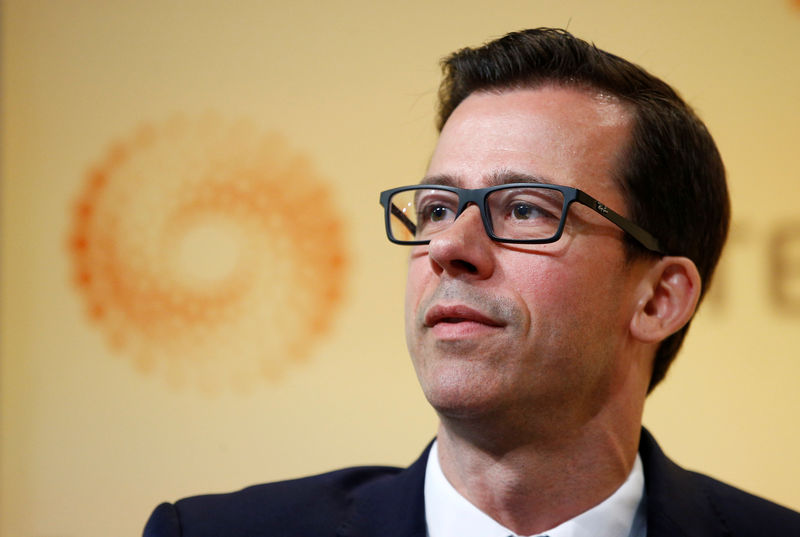By David Milliken and Andy Bruce
LONDON (Reuters) - The Bank of England will probably need to cut interest rates if Brexit is postponed again, rate-setter Gertjan Vlieghe said on Tuesday, adding to the debate at the central bank about the right response to another delay.
Vlieghe echoed the view of fellow Monetary Policy Committee member Michael Saunders, who last month said a rate cut was "plausible" if uncertainty persists around Britain's departure from the European Union.
But another of the BoE's nine rate-setters, Deputy Governor Dave Ramsden, has said Britain's economy is probably too damaged and made inflation-prone by Brexit for him to back a cut.
Prime Minister Boris Johnson says he will take Britain out of the EU on Oct. 31, with or without a deal, but lawmakers have passed legislation designed to force him to seek a delay if no transition agreement is struck in time.
"A scenario of entrenched Brexit uncertainty is likely to keep economic growth below potential, and require some monetary stimulus," Vlieghe said in a speech to the MMF Monetary and Financial Policy Conference held at Bloomberg in London.
For too long the BoE had assumed that Brexit uncertainty was about to lift and boost growth, and the delay to Brexit from its original March 29 date and weak growth since highlighted the damage that persistent uncertainty could cause, Vlieghe added.
FURTHER DELAYS
Vlieghe said in July that the BoE's response to further delays to Brexit would probably lie between the "smooth Brexit" scenario that could lead to a resumption of rate hikes, and a "no deal" Brexit in which rates could be cut close to zero.
Vlieghe said on Tuesday that the global economic outlook had deteriorated since July because of the escalating trade war and that slack was probably rising again in Britain's economy, which would have significant consequences for policy.
"While Brexit-related stockbuilding and other temporary factors are causing significant volatility in quarterly GDP growth, a range of other activity indicators suggest the underlying growth rate of the economy is now close to zero," he said.
Much of Vlieghe's speech focused on the firepower at the BoE's disposal to fight a future recession, which he said was now considerably less than before previous downturns.
Other central banks have already started to loosen policy as the global economy slows.
The U.S. Federal Reserve, having hiked rates to levels well above those of European peers, is now cutting them. The European Central Bank has experimented with negative interest rates -- something Vlieghe said would not be suitable for Britain.
Quantitative easing -- when a central bank purchases government bonds from investors using newly created money -- remained an option but one that was running into limits, both in terms of scale and effectiveness, Vlieghe said.
"We are not at the point where monetary policy has run out of ammunition, but the risk of that happening in the future has clearly risen relative to the pre-crisis period," Vlieghe added.
An alternative to buying government bonds could be buying other assets that had come under particular market stress, Vlieghe said, giving the example of the Fed's purchase of mortgage-backed securities during the financial crisis.
The 10-year British government bond yield now stands at around 0.6%, close to historic lows. "There is just not that much room for these yields to fall further," Vlieghe said.

He repeated his view that a radical suggestion for fiscal policy to create money and hand it out to the public - sometimes referred to as "helicopter money" - could put the operational independence of the central bank at risk.